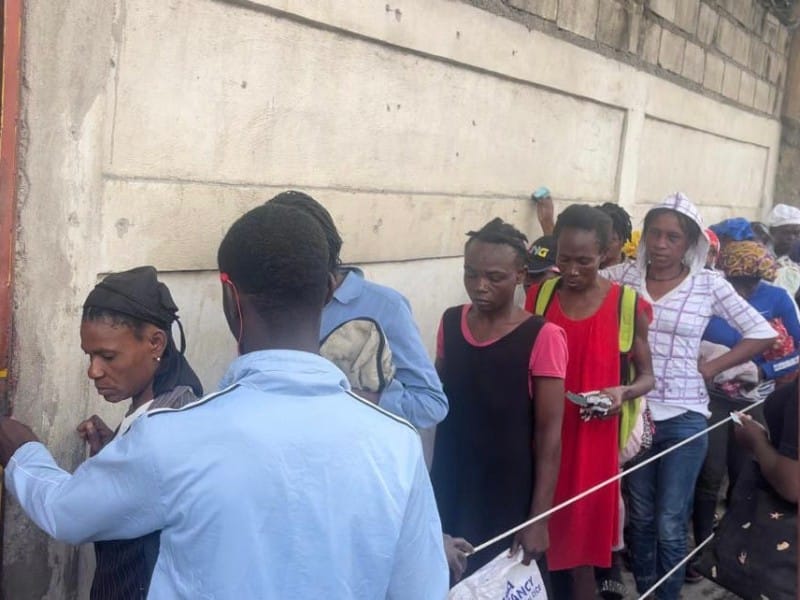
When Reverend Leo Seyij Allen returned from his trip to Palestine in March, he said he told his friend who picked him up from Hartsfield-Jackson Atlanta International Airport, “There is nothing in this country in the United States that can scare me after what I saw and experienced in Palestine. Nothing.”
In February, he boarded a plane from Atlanta to Tel Aviv, Israel. He was heading to Palestine, to hear first-hand from Palestinians in the occupied West Bank what it was like to live under the shadow of war, nearly five months since the Hamas’ attacks on October 7 sparked Israel’s war in Gaza, which has killed more than 33,000 people.
He was part of a delegation of 23 clergy and church members formed by pro-Palestinian organizations, including Kairos USA, Friends of Sabeel North America, and the Indiana Center for Middle East Peace. The aim was to report back their findings and help change the narrative around the Israel-Palestine conflict, and put pressure on US lawmakers.
Rev. Leo Seyij is the Activist Pastor in Residence at Park Avenue Baptist Church (PABC), a “multi-racial inclusive congregation” in Grant Park. He’s worked on issues ranging from the “Stop Cop City” movement to immigrant detention to LGBTQ+ justice. He and Reverend Dr. Brenda Smith were the only Black clergy in the delegation, and the only ones from Georgia.
The pro-Palestinian movement has found allies in Black churches here in Georgia and across the United States. In January, over 100 Black faith leaders in the state placed an ad in the AJC, calling for a ceasefire in Gaza. In an election year, and with Georgia’s status as a swing state, many hope to make their voices heard at the White House.
With Gaza off-limits because of the security situation, the delegation traveled to Bethlehem, Ramallah, Jerusalem, and Hebron. In each city, they met local Palestinians, like Hamoudi Huraini, a shepherd and activist in Hebron, and listened to their stories.
Huraini took the delegation around his neighborhood, showing him where he said he was arrested or beaten, or where he said his grandmother had been beaten. “He showed us folks living in the caves and the hillside of the village. He showed us families who had been displaced and where settlers had taken their homes.”

Rev. Leo Seyij had first learned about the chance to travel to Palestine through Reverend Fahed Abu Akel, a Palestinian Christian pastor living in Metro Atlanta, who himself had been displaced from his home as a child in Palestine, more than 75 years ago. Rev. Fahed, said Rev Leo Seyij, was intent on having members of the Black clergy join the delegation.
Now, back home on Atlanta’s Westside, the fate of Huraini and the others from his trip, is on his mind. “All I think about every day, when I wake up, and usually when I go to sleep, are the people that I met and the friends that I made, and wondering, are they okay?”
He’s also been reflecting on his role here. “People were not mincing words about the role of the US taxpayer dollars on funding the war, ” he said. That’s inevitably led him to ask himself questions like, “What does it mean to be a US citizen? What does it mean to be a faith leader? What does it mean to be a queer person in the South?”
The delegation published their report last month. The findings were addressed to the U.S. government as well as churches across the country. Rev. Leo Seyij plans to schedule meetings with the offices of Senator Jon Ossoff, Senator Raphael Warnock, Representative Nikema Williams, as well as state legislators to inform them about what he saw and heard on his trip.
The people Rev. Leo Seyij met on his trip had asked him to deliver two clear messages when he got back to the U.S.: “One was keep fighting. Keep lifting up your voice. Keep demanding your government do the right thing. The second was – come back and bring people with you.”


